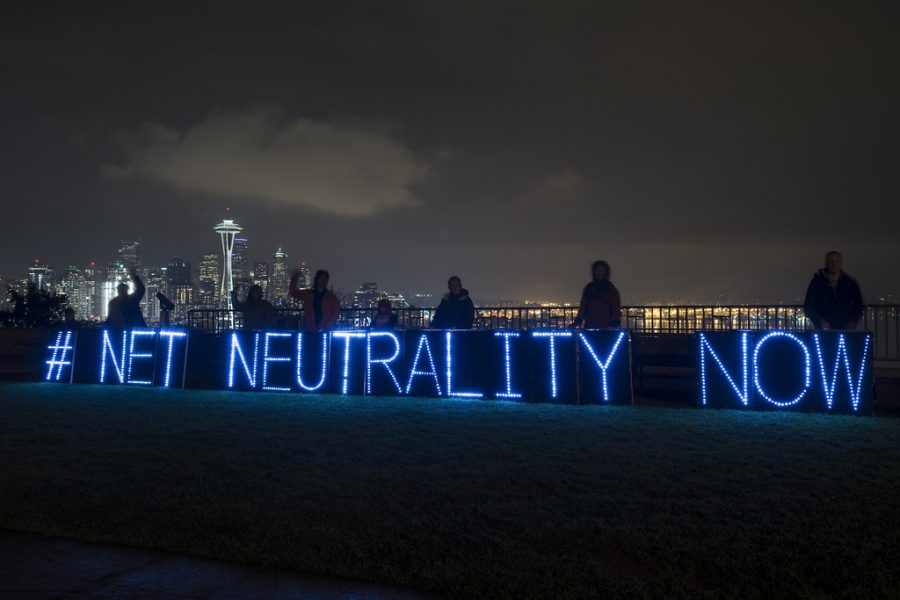The Fight for Net Neutrality
December 13, 2017
With Net Neutrality, Americans can surf the Internet with ease, switching between social media, search engines, or streaming sites freely. However, on Dec. 14 the Federal Communications Commission will vote on removing Net Neutrality regulations that ensure equal access to the Internet and prevent telecommunication companies from forming monopolies.
As a reliance on the Internet soars in popularity for work, education, and entertainment, this vote could have adverse effects. The current rules prevent “high-speed internet service providers, or I.S.P.s, from stopping or slowing down the delivery of websites” and prohibit companies from charging customers’ access to high-quality streaming.
Without these rules, companies like Verizon, Comcast, or AT&T could censor access to sites, slow down connections, and demand fees. They would charge additional or higher fees to speed up connections. Additionally, depending on their Internet providers, consumers won’t have equal access to various websites and may face charges to access Twitter or encounter a slowly loading Netflix.
Average Americans using the Internet won’t be the only ones affected. Schools like Ludlow High School will also face repercussions from this decision. Every student has a Chromebook that uses Google apps like Drive, Sheets, and Mail. But if their Internet provider no longer supports Google, students could have to pay fees for use at home, the school could supplement the price, or the students would no longer have access to it.
Despite widespread protests across America, Ajit Pai, a former Verizon employee and Trump’s FCC chairman appointee, plans to cut the Net Neutrality regulation. The majority of the board claims the rules harm competition, hinder the free market, and inhibit partnerships between companies.
The removal of Net Neutrality would actually be detrimental to American competition. Certain companies may unite to form monopolies and unfairly favor their partners. This would crush creativity and innovation as smaller companies are immediately undermined.
Large companies, like Google or Amazon, would benefit from the freedom to charge consumers and prioritize specific sites. Smaller companies could not enjoy this privilege or compete with monopolies, despite their own talent.
Ajit Pai claims the rules will force companies to be transparent with its consumers as they decide which products and services to buy. However, the telecommunication companies have abused their power in charges and delivered content in the past. Americans have nearly no proof that they may trust these monopolies to ensure equality and avoid greed.
Net Neutrality affirms Americans free access to the Internet and information. Without it, their First Amendment is violated as their speech and content is censored and their freedom to chose is revoked. As the FCC vote approaches, Americans can object to this violation of their rights through protests or voicing their opinion on Twitter. They may no longer be able to as soon as Jan. 2018.



Joseph • Dec 15, 2017 at 7:46 am
If you don’t like Comcast or some other company, then get a better deal. It’s called capitalism for a reason. Net Neutrality was favored by the MSM and big company’s because it forced company’s to give equal service. This wasn’t a problem for big company’s, but for small company it was. It got them shut down leaving company’s like Comcast, Verizon, Sprint, and many more with no enemy’s to compete with. Leaving the MSM to control what you see, read, hear, and think. So thank God they repealed Net Neutrality.
Katie Codding • Dec 13, 2017 at 2:33 pm
NET NEUTRALITY IS NEEDED FOR FREE SPEECH. GETTING RID OF IT WOULD BE UNCONSTITUTIONAL!!!!